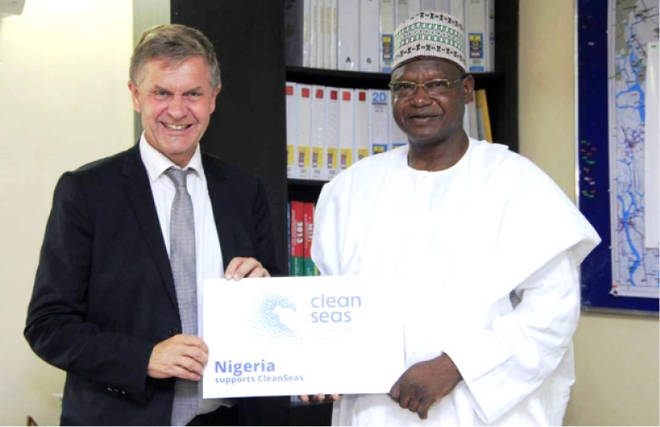UNEP to provide support to address Nigeria’s environmental issues
The United Nations Environment Programme (UNEP) will provide international expertise to support Nigeria to address the numerous environmental challenges devilling the different parts of the country. The Executive Director, Erik Solheim, disclosed this on Friday when he paid a courtesy visit to the Minister of State for Environment, Ibrahim Usman Jibril, in Abuja. Solheim, who […]


The United Nations Environment Programme (UNEP) will provide international expertise to support Nigeria to address the numerous environmental challenges devilling the different parts of the country.
The Executive Director, Erik Solheim, disclosed this on Friday when he paid a courtesy visit to the Minister of State for Environment, Ibrahim Usman Jibril, in Abuja.
Solheim, who noted that the society cannot be changed without cleaning the environment, said environment and development cannot be separated.
He however urged the Federal Government to channel more energy into waste management to reduce, reuse and recycle plastics in the country, saying, “Waste management is one course UNEP is glad to support, we want to work with you on that, there is no limit to what we can achieve if we work together, the big environment issues can be addressed.”
The executive director said if India, with all its complexity as a country, can achieve zero plastic by 2020, why can’t Nigeria and other African countries do the same.
While noting that there is need to reuse materials, bring the products and recycle, he said it is important to engage the local communities to conserve the environment.
He said they can bring in modern technology that can do more work at a time, adding that it gives enormous opportunity to conserve the environment.
Speaking earlier, the Minister of State for Environment Jibril said there is no section of the country that did not have environmental challenges, adding that the government in partnership with relevant stakeholders was addressing the problems in all the six geopolitical zones of the country.
While listing the challenges to include deforestation, abandoned mining pits, flooding, gully erosion, lead poisoning among others, he also noted that the Lake Chad has shrunk to just 10 per cent of its original size causing loss of livelihood.
